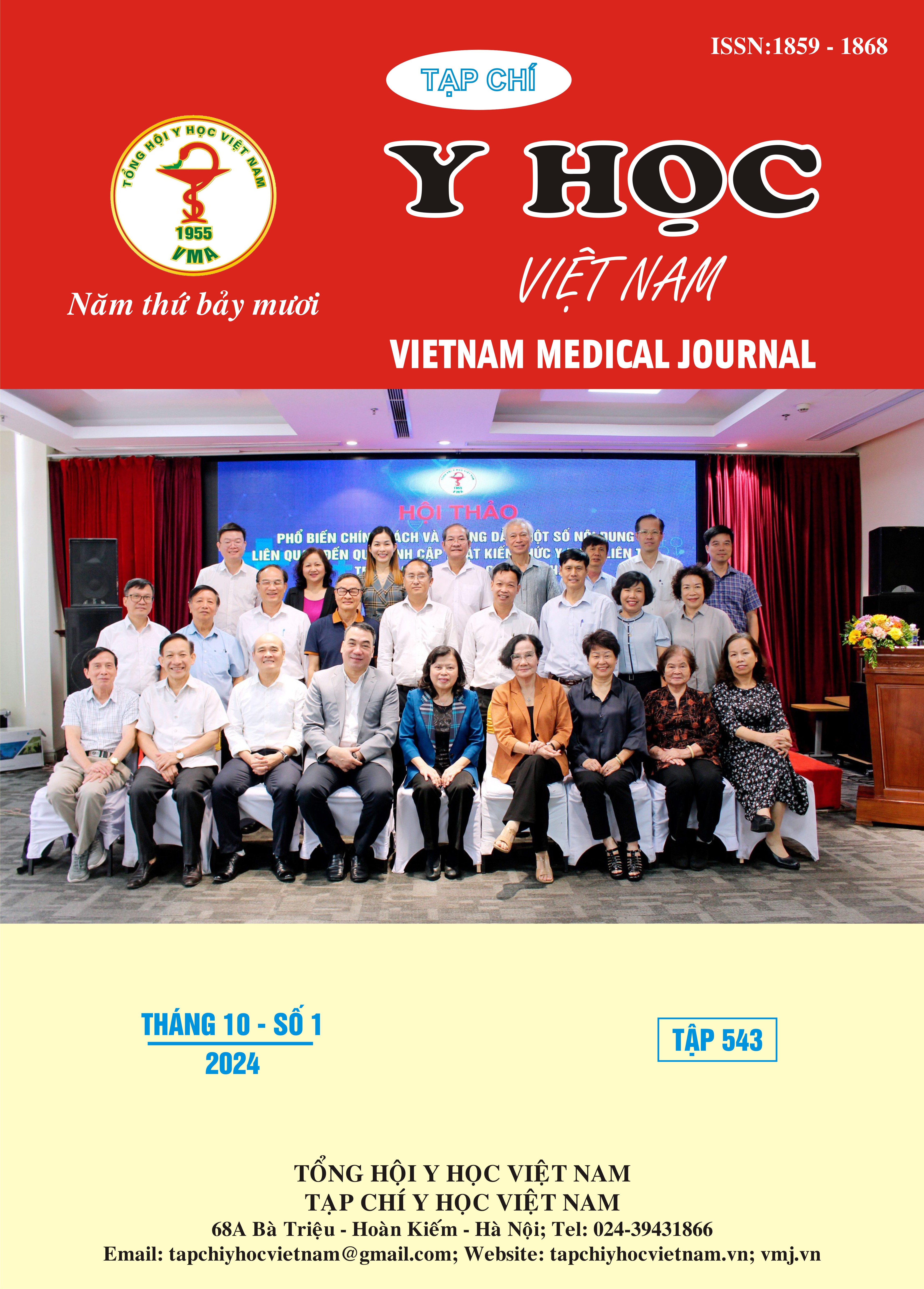EVALUATE HEALTH-RELATED QUALITY OF LIFE OF PATIENTS FOLLOWING CORONARY ARTERY BYPASS GRAFT AT THE CARDIOVASCULAR TAM DUC HOSPITAL
Main Article Content
Abstract
Background: Coronary heart disease is a public health problem and is one of the leading causes of loss of quality of life, disability, and death worldwide. Coronary artery bypass grafting (CABG) helps improve quality of life, symptoms of myocardial ischaemia, and ventricular function, thus helping increase the survival rate of sufferers. Aim: To evaluate the Health-related quality of life (HRQOL) of patients following coronary artery bypass graft at the Cardiovascular TAM DUC Hospital. Method: A cross-sectional descriptive study on 52 cases following coronary artery bypass graft at the Cardiovascular TAM DUC Hospital from 1/1/2023 to 31/12/2023, using the SF-36 questionnaire. Result: Most pateints are male (69,2%) and over 60 years of age (38,5%). The mean score of 4 physical health domains including Physical Functioning (PF), Role Physical (RP), Bodily Pain (BP) and General Health (GH) were: 83,08; 70,04; 70,08, and 75,48. The average scores of the four mental health domains including including vitality (VT), social functioning (SF), role emotional (RE) and general mental health (MH) are: 79.42; 80.50; 70.51 and 68,29, respectively. Conclusion: The total points of HRQOL in all areas were quite and quite good. Therefore, coronary artery bypass graft is an indication for clear improvement in postoperative patients.
Article Details
Keywords
Quality of life, SF-36, coronary artery bypass graft.
References
2. Iglesias, C., D.J.J.o.h.s.r. Torgerson, and policy, Does length of questionnaire matter? A randomised trial of response rates to a mailed questionnaire. 2000. 5(4): p. 219-221.
3. Kim, H., et al., Predictors of health-related quality of life after coronary artery bypass graft surgery. 2022. 12(1): p. 16119.
4. Creber, R.M., et al., Effect of coronary artery bypass grafting on quality of life: a meta-analysis of randomized trials. 2022. 8(3): p. 259-268.
5. Perrotti, A., et al., Relationship between depression and health-related quality of life in patients undergoing coronary artery bypass grafting: a MOTIV-CABG substudy. 2016. 25: p. 1433-1440.
6. Houlind, K., et al., On-pump versus off-pump coronary artery bypass surgery in elderly patients: results from the Danish on-pump versus off-pump randomization study. 2012. 125(20): p. 2431-2439.
7. Kiebzak, G.M., et al., Use of the SF36 general health status survey to document health-related quality of life in patients with coronary artery disease: effect of disease and response to coronary artery bypass graft surgery. 2002. 31(3): p. 207-213.
8. Szygula-Jurkiewicz, B., et al., Health related quality of life after percutaneous coronary intervention versus coronary artery bypass graft surgery in patients with acute coronary syndromes without ST-segment elevation. 12-month follow up. 2005. 27(5): p. 882-886.
9. Gaudino, M., et al., Graft failure after coronary artery bypass grafting and its association with patient characteristics and clinical events: a pooled individual patient data analysis of clinical trials with imaging follow-up. 2023. 148(17): p. 1305-1315.
10. Taghipour, H., et al., Quality of life one year after coronary artery bypass graft surgery. 2011. 13(3): p. 171.


